home
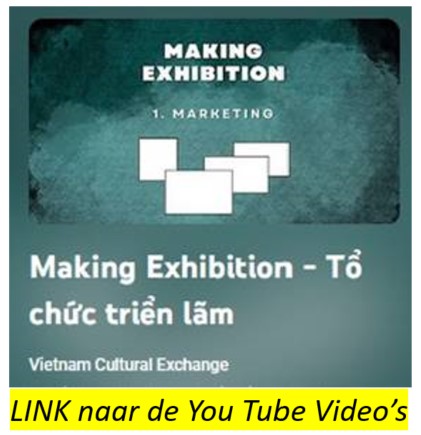 English video series
English video series
about making
exhibitions
with topics
such as: marketing, copyrights, the concept, work plan, budget, during the
exhibition, etc.
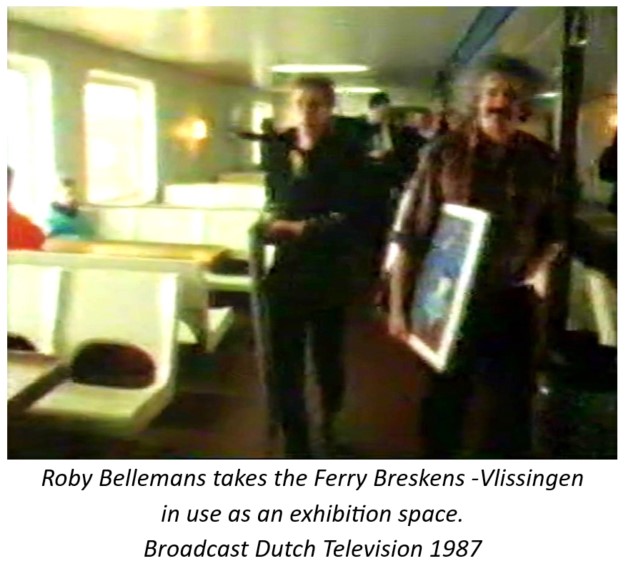 Professional
training in making exhibitions
Professional
training in making exhibitions
In fact, in most countries there are few
opportunities to learn how to make exhibitions as a profession, just like in
the Netherlands.
That is why the Dutch Library Service suggested to me about 30 years ago
to develop such a training for libraries and to write a manual about it, which
became the manual "How to be a succesful exhibiter. A basic Guide”. The
question arose because I had such extensive experience in making exhibitions
and because I also studied Educational Science for a while.
I then developed that course and then taught it to library staff for
several years and also at art academies and high schools. Because some
interested people lived far away, even abroad, I also developed written course
material.
After a few years I had had most of the libraries and I was too busy
making my own exhibition. I neatly stored the course material even though I
didn't know then that there would suddenly be a covid outbreak. And it came and
then we had to stay home.
There is not much you can do then, except for example clean up your
archive.
Viet Nam Cultural Exchange (VNCE)
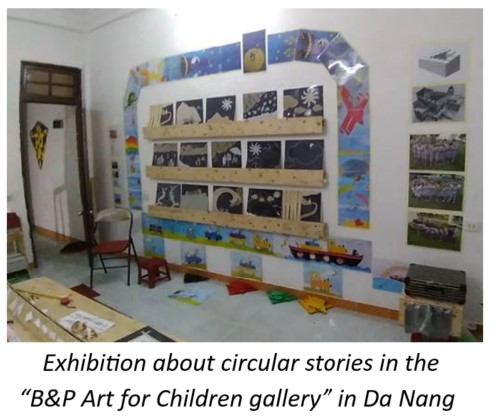
Coincidentally,
just before covid broke out, I had helped Oanh Le, a former student of mine,
set up her 'Art for Children Gallery' in Da Nang, central Vietnam. She knew
that I had developed that course at the time and asked me if I could not make a
video series based on it. Because in Vietnam there was also a lack of
accessible vocational training in making exhibitions, and she thought that this
was the case in many more countries.
I was at home
anyway and it seemed like a good idea, the series had to be in English,
fortunately my English is very limited so that everyone can follow it and I
hardly use any typical 'professional terms'.
What is the difference
between this series and other existing videos?
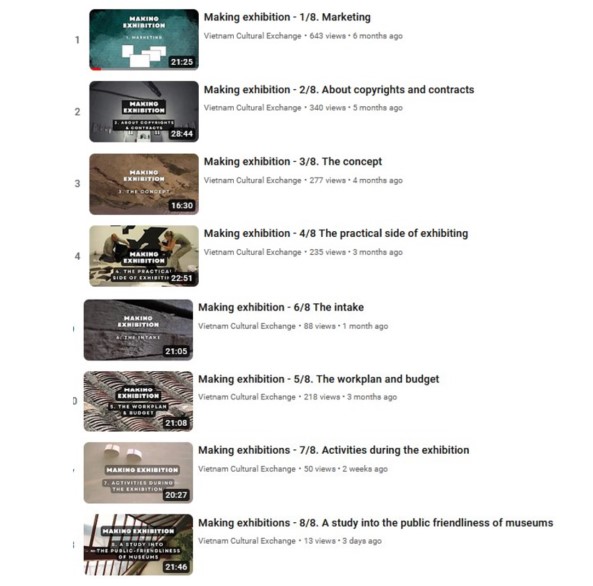 - first of all it is a series of 8 videos and
not 1 video and there are additional videos as well;
- first of all it is a series of 8 videos and
not 1 video and there are additional videos as well;
- I have given many guided tours, so I tell
my story very differently than a teacher does;
- I am also used to using spoken language,
which is much simpler;
- I studied educational science and therefore
developed the material myself based on my own practice;
- the videos are especially interesting for
people who cannot follow a university education due to the lack of time and
opportunities;
- I have experience in making very small
exhibitions in a local library, but also in making exhibitions in large
international museums;
- I usually financed my exhibitions myself,
from my own practice I show how you can do a lot with few resources;
- the videos therefore give a good picture of
how I developed from an ordinary gallery owner to an international museum
director;
- for those who want to know more there is
the adjoining Patreon site, which also contains the material that I developed
for the handbook;
- exhibiting is quite a lonely profession and
it is often difficult to talk about specific problems, so that's what the
Patreon site is for;
- on the Patreon site you will also find the
assignments from the written training to gain experience;
- the proceeds of the site are used by VNCE
to develop projects and that knowledge is shared;
- the additional videos are also interesting:

About Roby
Bellemans:
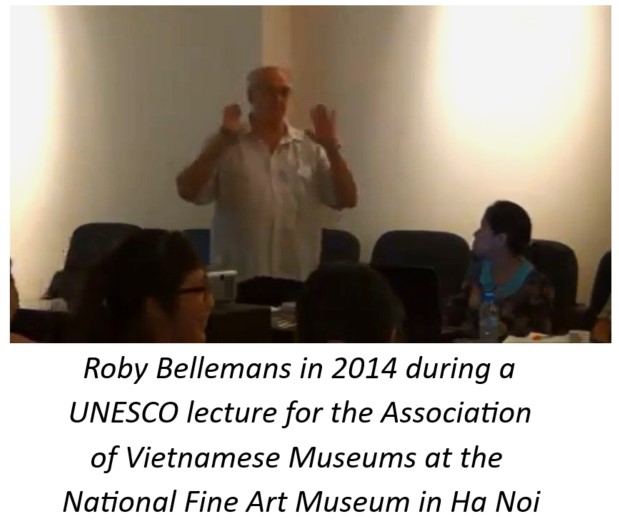
That's very simple: my father was a
visual artist and so was my older brother, thus I've literally been in the
profession since I was born and grew up among the paintings in the making. I
learned very young that the life of an artist is not a bed of roses. When I was
admitted to study at the Royal Antwerp Art Academy myself, I knew after a few
weeks that it was not making art, but presenting it that gave me the most
satisfaction.
I then worked in various positions for various local, national and
international museums and cultural centers until I started my own gallery in
the early 1980s.
It's all on my resume. Well, I do not have a museum university education,
but I have read a lot of professional literature and I have a lot of practical
experience.